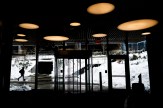Northeastern global community unites as record-setting Giving Day fuels student clubs, programs and innovation
Giving Day Live! enjoyed a starring debut, offering four and a half hours of streaming from eight Northeastern campuses.

Northeastern’s international community rose up in unprecedented numbers Thursday for the university’s eighth annual Giving Day.
The entrepreneurial festival generated $3.6 million from close to 14,000 donors — with both totals shattering records at Northeastern.
One hundred percent of donations go to the faculty, teams, student organizations and academic programs associated with Giving Day — directly helping students and faculty pursue their ambitions.
On Centennial Common at the Boston campus, giveaways of popcorn and ice cream were complemented by games of cornhole, high striker (ringing a bell with an oversized hammer) and other activities.
The centerpiece of this scene was the stage of Giving Day Live! — a streaming service that virtually connected the university’s network of 13 global campuses. Circulating across the stage for four-and-a-half hours were 50 students, faculty, staff and graduates, who altogether helped elevate the festival’s international reach in an unprecedented way.
A bright blue sky negated the crisp spring temperature to encourage Giving Day participation from all corners of the Northeastern community.
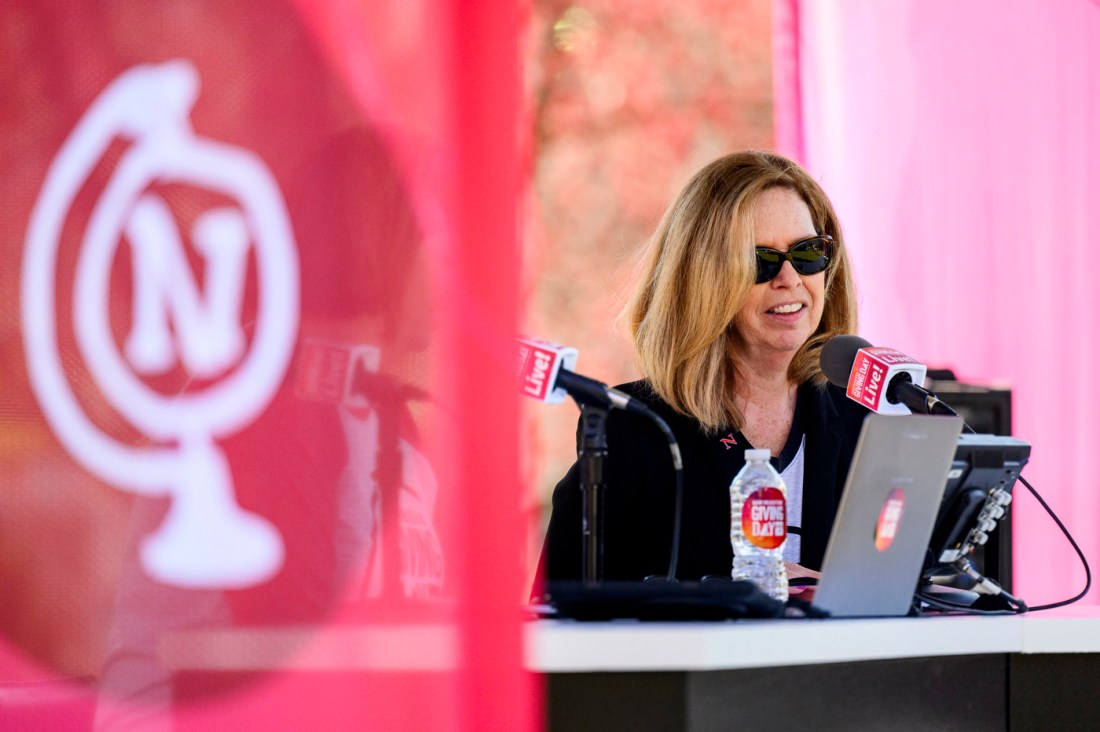
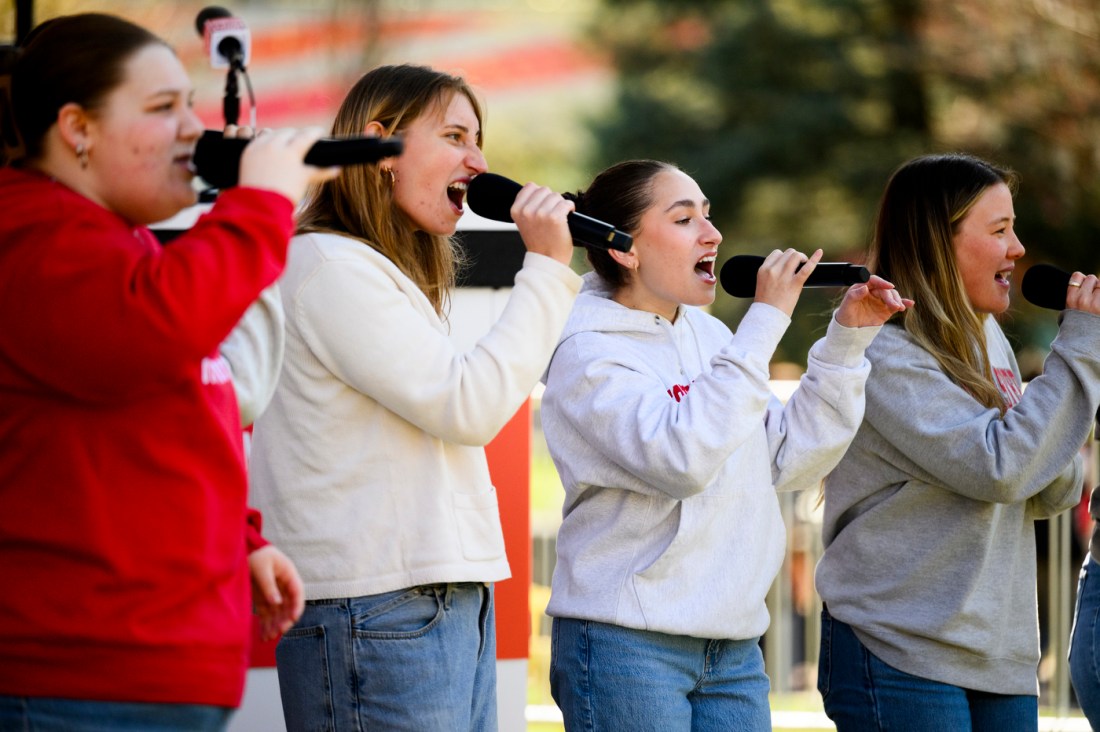
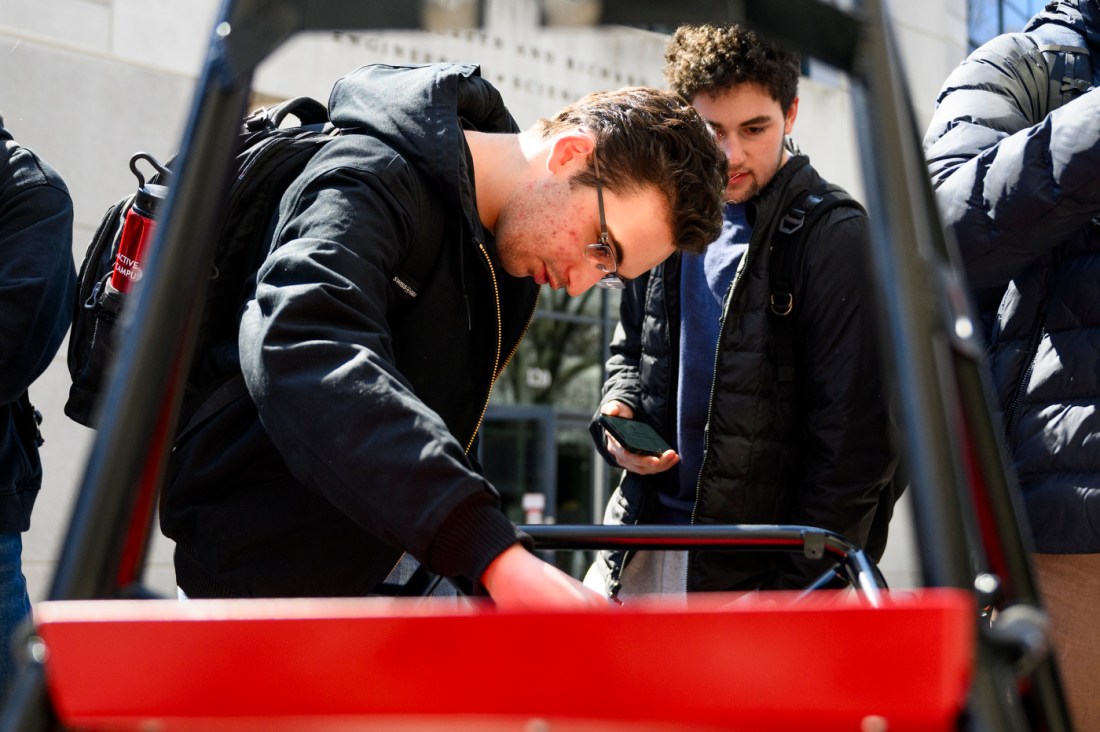
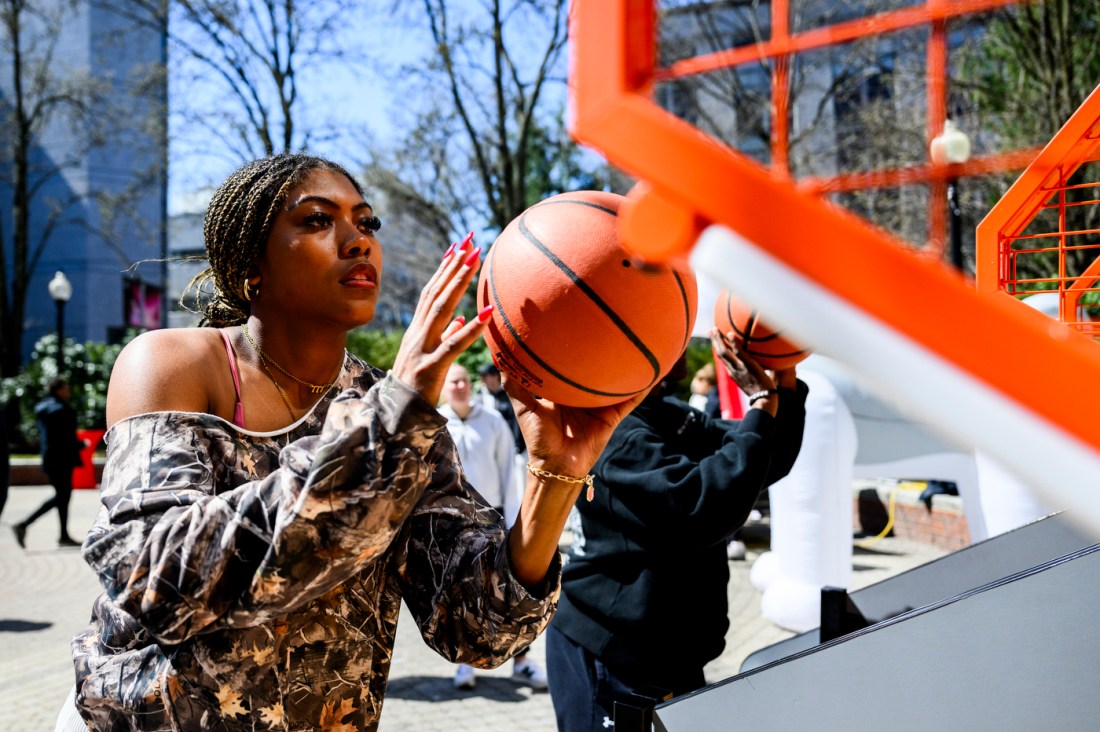
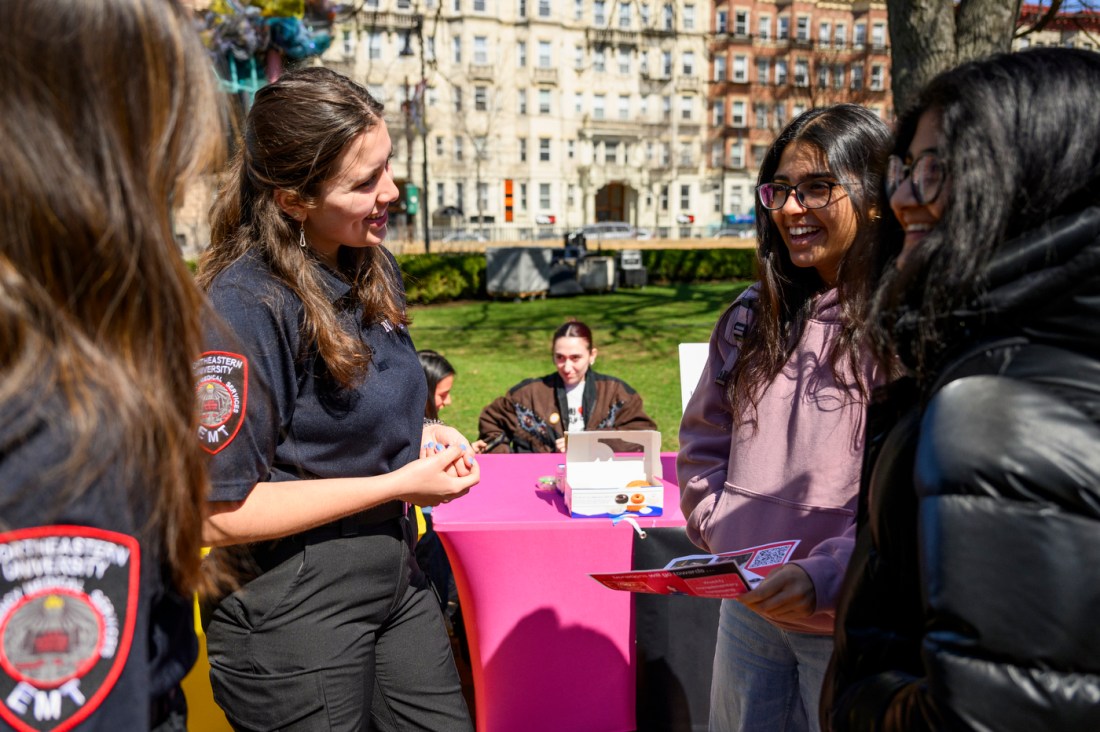
A record 108 challenges
Helping to drive the proceeds were a record 108 challenges (a 30% gain over last year). Overall, more than 1,000 faculty and staff made donations on Giving Day, another step up from one year ago.
The annual Challenge of the Colleges once again offered some of the biggest prizes of Giving Day, with a total of $80,000 to be divvied up among (1) the colleges that realize the largest increase in donors and (2) colleges that raise at least $10,000 by 8 p.m. on Giving Day.
The largest increase in donors was realized by the Bouvé College of Health Sciences, followed by the College of Engineering and the College of Professional Studies.
More than 80 student organizations set up fundraising tables throughout the Boston campus, promoting their clubs’ missions while seeking donations.
Six tables represented organizations associated with the College of Engineering, an annual leader in Giving Day support.
“We’ve realized that the key to success is promoting a sense of community and giving back to organizations that you’re a part of and that mean a lot to you,” Kyle Garvey, the College of Engineering’s director of development, said of the students who were working the tables. “The students want to be part of this.”
Student clubs of all varieties
Among the engineering organizations was the relatively new Combat Robotics club, which designs and constructs remote-controlled battlebots that seek to wreck opponents in competitions hosted by the National Havoc Robot League.
“It’s a place where you get to learn about the cutting edge of engineering,” said Lucas Tang, a third-year mechanical engineering and physics student who serves as project lead for the club. “You’re constricted by weight and you want to be stronger, you want to become more competitive — so it’s a lot of optimization, which I like.”
The money from Giving Day goes directly to the robots.
“We make everything we can in-house because we get more engineering experience out of it but also because you can make them better if you do it yourself,” Tang said. “No one normally needs bolts that are going to withstand hundreds of thousands of pounds of force — but we do.”
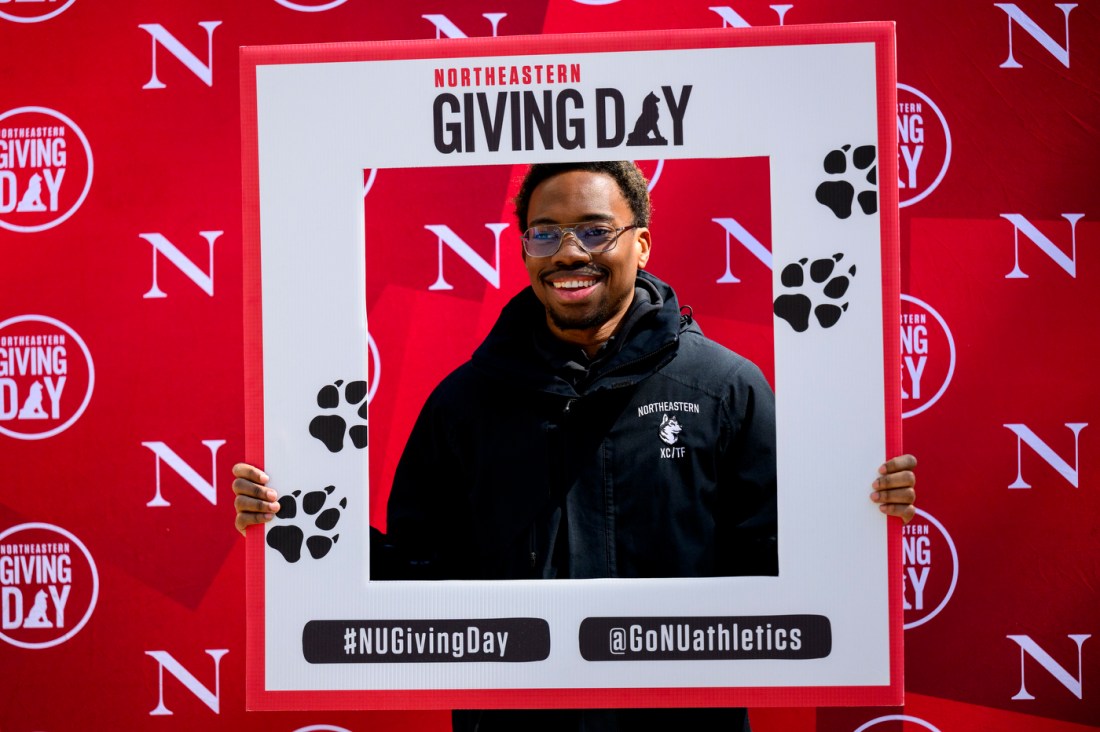
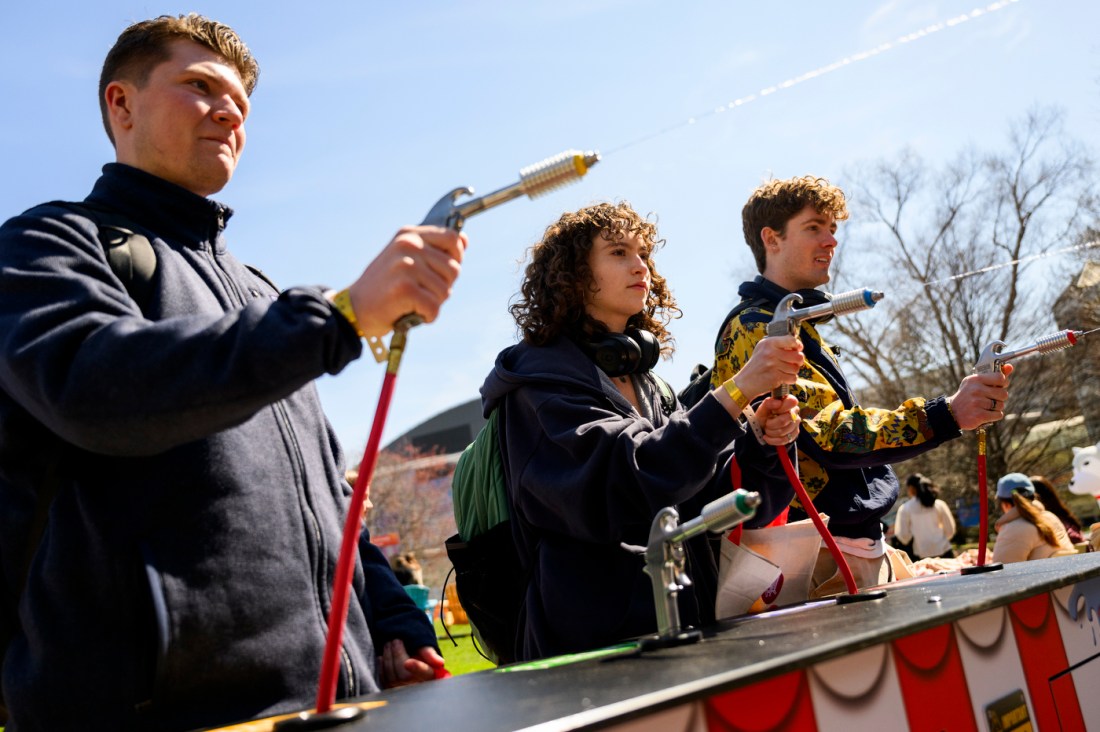
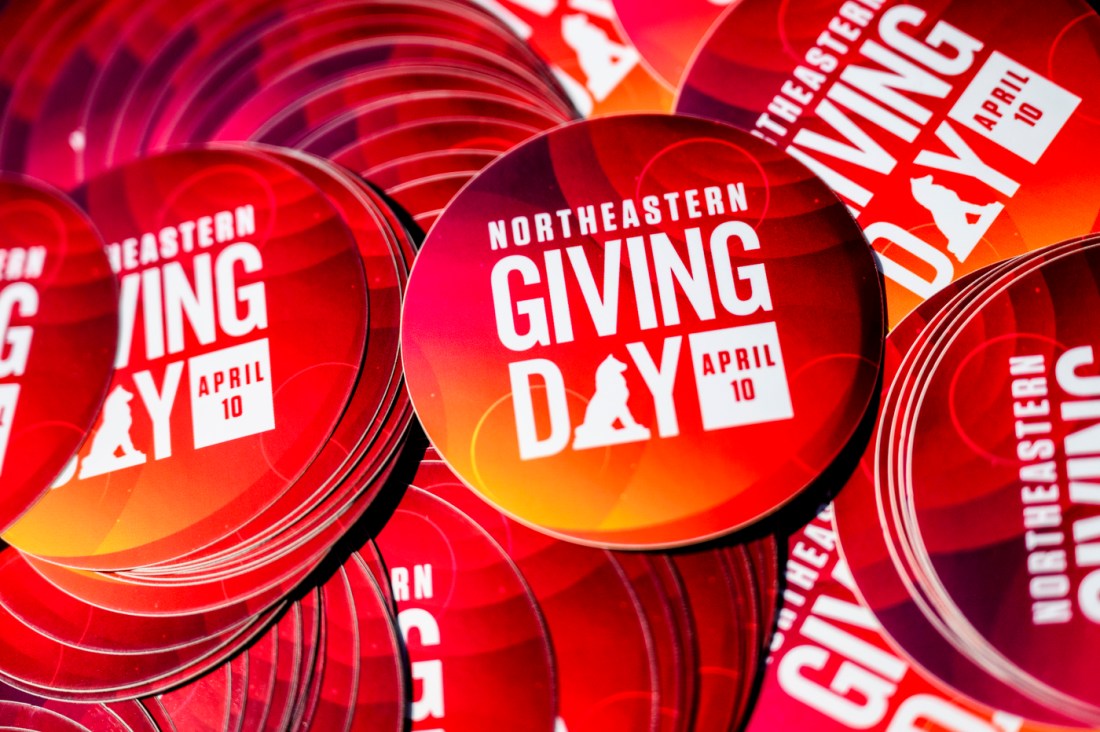
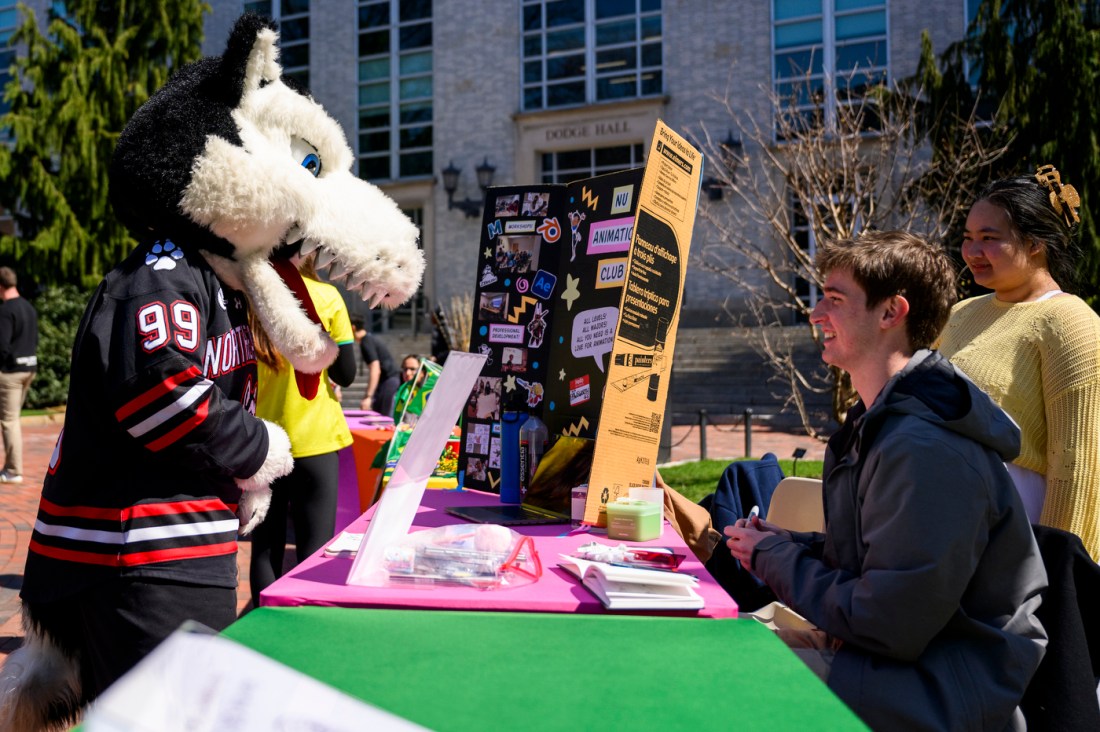
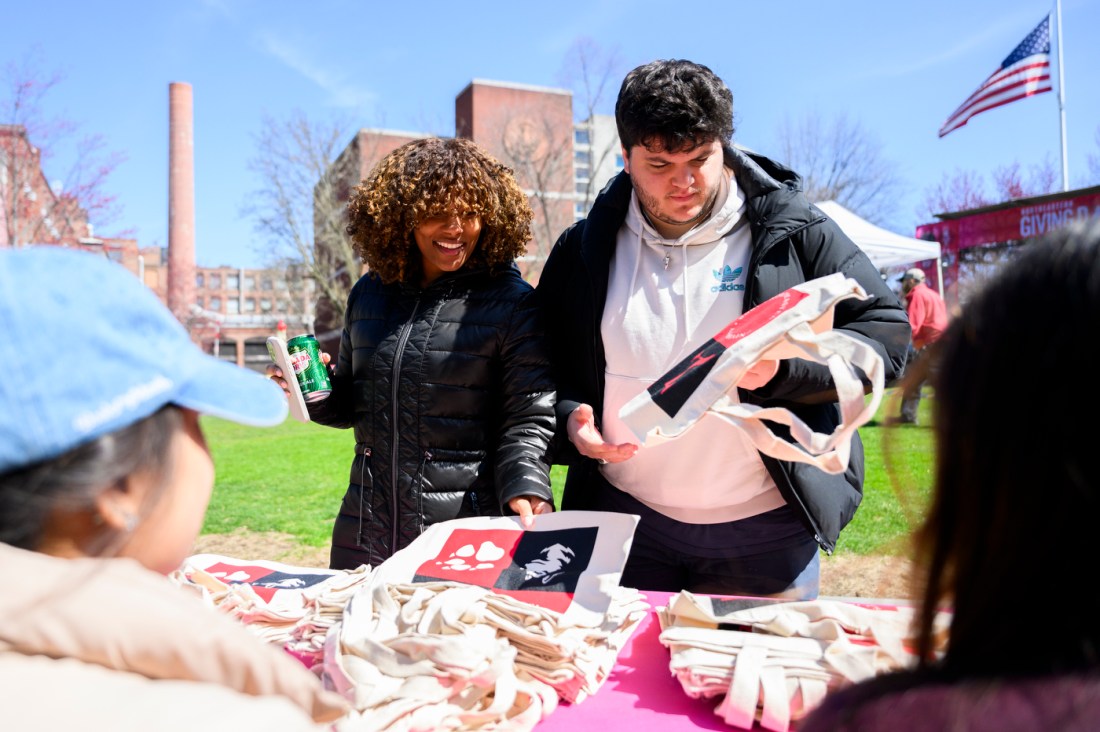
Student-athletes connect community
Nearby at Snell Quad, the athletic department’s student-athletes, coaches and administrators were encouraging passersby to compete in air hockey and other games.
“One of athletics’ core missions is to be a connector of current students, alums and supporters — and create and sustain that sense of belonging to the university,” said Regina Sullivan, deputy athletic director at Northeastern. “Giving Day is a great way to do that for all of our programs.”
The fundraising of Giving Day is important financially to Northeastern sports, Sullivan said.
“Developing that support is critically important to how we move forward,” Sullivan said. “The money helps our programs reach their potential and the goals that they have to be competitive on a broader scale — to provide a strong student experience for our athletes and to be a contributing member of the university community.”
As usual, the athletic department featured challenges for every varsity team sport, with field hockey ($20,000), baseball ($10,000) and track and field and cross country ($10,000) earning big payoffs relatively early in the day.
Overall, varsity athletics received more than $870,000 in donations to lead the way among Northeastern organizations and colleges. Running second in terms of gifts were club sports and recreation, which received more than $257,000 from a Northeastern-leading 2,930 donors.
Editor’s Picks
Groups made their best pitches
At Krentzman Quad, dozens of outward-facing tables encircled the yard as student groups explained their missions and made their pitches for support.
The Red & Black, Northeastern’s student-run sports media group, was promoting “History of the Huskies,” an unprecedented 250-page coffee table book that its staff has been assembling for more than two years.
“It covers the entire history of Northeastern athletics,” said project leader Jason Singer, a senior majoring in business management, marketing and finance. “We cover every single varsity sport.”
The project, developed with the support of the university athletic department, includes a Northeastern sports museum, officially licensed merchandise and a large online database — all managed by students.
“All donations will go towards our funding of the book,” said Singer, adding that 10% of the book’s eventual proceeds will be donated to the Jimmy Fund and the remainder will be funneled back into the project. “This is an exciting time for us.”
The Brazilian Student Association (BRASA) was seeking support for an upcoming summit it will be hosting at Northeastern.
“We do a lot of speaker series and co-op workshops, resume workshops, to support the students coming into campus and really make them feel like home away from home,” said Isabela Bueno Silvares, a second-year international business student. “We’re a chapter of BRASA — they have more than 100 chapters around the world in the biggest universities — and we were chosen to host that summit here. So that’s a big honor.”
Silvares and freshman Helena Dias were both wearing Brazil football (soccer) jerseys.
“This community really helped me,” Dias, who is studying business administration and mathematics, said of BRASA. “Being away from my home and having people here that I can relate to with the same culture — people I’m meeting every week from different backgrounds in Brazil — makes a lot of difference.”
Emergency Medical Services club
The Emergency Medical Services club (NUEMS) offers CPR certification while also providing first-aid staffing at Northeastern athletic and entertainment events.
“We’re trying to get a class five ambulance in order to respond to medical emergencies on campus,” said Adriana Totten, a third-year health sciences student who serves as director of operations for NUEMS. “We’ve noticed a discrepancy where some students and faculty and community members on campus are waiting a long time in order for a transporting unit to come, just because the industry in itself is so overburdened and we don’t have enough trucks in the city. So we’re hoping that this will at least get providers and medical care to our community members within a couple minutes, rather than waiting longer for a transporting unit.”
The two-decade club has about 100 members. NUEMS works closely with the university police department and faculty on a variety of projects while providing educational and certification support to students.
“This club has enriched every aspect of my life,” Totten said. “I am so beyond passionate about this.”
The END Initiative was seeking support for its student-run organization to create awareness of neglected tropical diseases (NTDs).
“We are a global health advocacy club,” said Deshawna Escobedo, who will be graduating in behavioral neuroscience this year. “Neglected tropical diseases primarily affect the global south and low-income areas around the world. We try to raise awareness and tell people about the research that’s going on in the field.”







